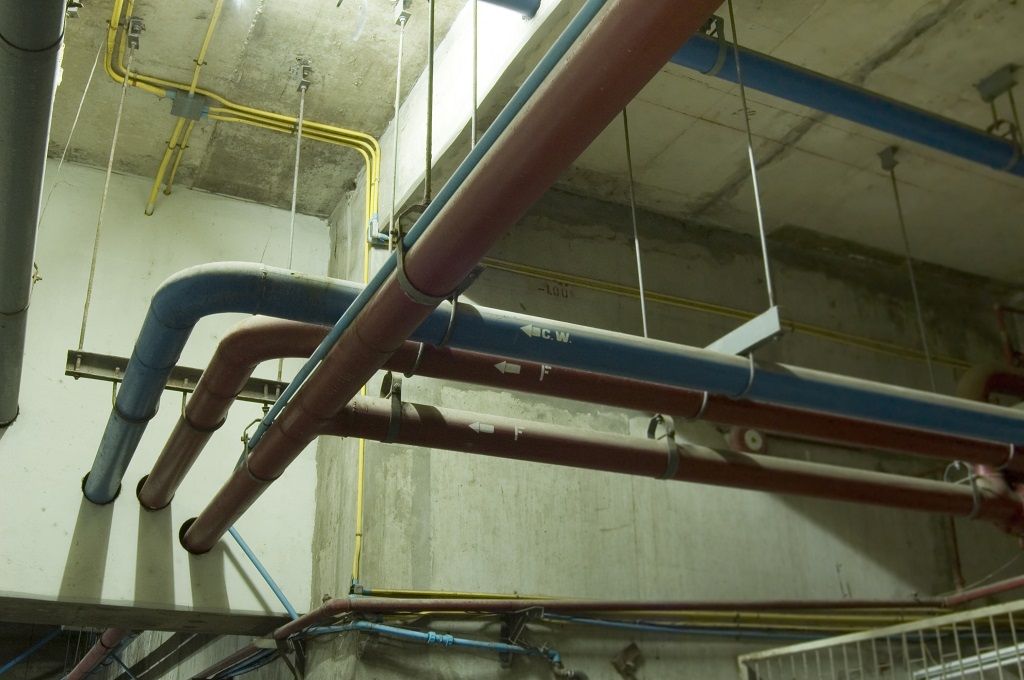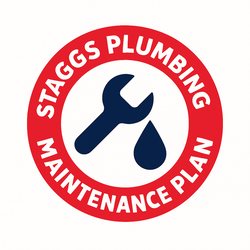Repiping vs. Pipe Repair – Making the Best Choice for Your Home
As a homeowner, dealing with plumbing issues can be a daunting and stressful task. One of the most common problems that homeowners face when it comes to their plumbing is damaged or faulty pipes.
This can result in leaks, low water pressure, and even potential health hazards. When faced with this issue, two main options are available: repiping or pipe repair.
In this article, we will dive into the differences between these two methods and provide you with the necessary information to make an informed decision about what is best for your home.

Your home’s plumbing system is its circulatory system, carrying water to where it’s needed and carrying waste away. It’s vital that this system runs smoothly.
Whether you’re dealing with a sudden burst pipe or ongoing issues like leaks and low water pressure, addressing plumbing problems promptly is crucial.
But what’s the best solution for your home—repiping the entire system or simply repairing the pipes? This guide will help you make an informed decision.
Signs Your Pipes Need Attention
Water Discoloration
If your water has turned a rusty brown or yellow, it could indicate corrosion in your pipes. Corroded pipes not only affect water quality, rendering it unappealing and possibly unsafe for consumption, but can also lead to leaks or bursts that may cause significant damage to your property. It’s essential to investigate the source of discoloration promptly, as it may point to underlying issues that require immediate attention.
Low Water Pressure
A sudden drop in water pressure can be quite alarming and usually signifies a blockage or leak somewhere in your plumbing system. While this can sometimes be a minor issue, such as a clogged faucet aerator, persistent low water pressure often points to more significant problems, such as a malfunctioning pressure regulator or hidden leaks that could lead to extensive water damage if left unaddressed. Regular checks on your water pressure can help identify issues before they escalate.
Frequent Leaks
One leak can be a minor inconvenience, easily fixed with a little plumbing tape or a quick call to a handyman. However, multiple leaks are a red flag and should never be ignored. Frequent leaks suggest that your pipes are deteriorating due to age, corrosion, or poor installation, and may require more than just quick fixes. It’s crucial to consult with a plumbing professional to assess the overall health of your plumbing system and make necessary repairs to avoid costly damages and ensure the integrity of your water supply.
Understanding the Options
What is Pipe Repair?
Pipe repair focuses on addressing specific issues within your plumbing system, whether it’s a minor leak, a small burst, or corrosion in a section of pipe. This targeted approach allows homeowners to tackle immediate problems without the need for a complete overhaul.
Various methods used in pipe repair include patching, where a sealant or epoxy is applied to the leak, relining, which involves inserting a new lining into the existing pipe to create a barrier, or replacing small sections of the pipe as needed. These repairs can often be completed relatively quickly, minimizing disruption to your daily life.
What is Repiping?
Repiping, on the other hand, involves a comprehensive replacement of the entire plumbing system in your home. This process is more extensive and typically requires significant labor and materials, making it a more costly option.
However, the investment can be worthwhile, as repiping offers a long-term solution to recurring plumbing issues such as frequent leaks, poor water quality, or outdated materials. Homeowners can choose to repipe with modern materials like PEX or CPVC, which can improve water flow and reduce the risk of future problems.
Costs Involved
When it comes to costs, pipe repair is generally less expensive than repiping. For example, a minor repair might cost a few hundred dollars, typically ranging from $100 to $500, depending on the severity of the issue and the method used.
In contrast, repiping an entire house can range from $4,000 to $15,000 or more, depending on the size of the home, the complexity of the job, and local labor rates. This cost includes not only the materials but also the labor involved in removing old pipes and installing the new system. Homeowners should consider their specific needs and budget when deciding between repairs and repiping.
Expected Outcomes
While pipe repairs provide quick fixes and can effectively solve immediate plumbing problems, they may not address underlying issues that could lead to future complications. For instance, if a repair is made to a corroded pipe without addressing the root cause, the problem may resurface.
On the other hand, repiping eliminates all old, damaged pipes, providing a fresh start with a modern system that is less prone to issues. This proactive approach can save homeowners from the hassle and expense of repeated repairs, offering peace of mind and reliable plumbing for years to come. If you’re noticing frequent leaks or low water pressure, it may be time for a repiping upgrade to ensure your plumbing system functions efficiently.
Factors to Consider
Age of Your Plumbing System
Older homes with aging plumbing systems are more likely to benefit from repiping. If your home is over 50 years old, the pipes have likely reached the end of their lifespan.
Material of Existing Pipes
The type of material used in your existing pipes plays a critical role in your decision. Galvanized steel and cast iron pipes are prone to corrosion and may require repiping, while more modern materials like PEX or PVC might only need repairs.
Extent of Damage
Minor, localized damage can often be effectively managed with repairs. However, if the damage is widespread, repiping might be the more efficient and long-lasting option.
The Decision-Making Process
Consult with Professionals
Before making a decision, consult with a certified plumber. They can conduct a thorough inspection, diagnose the problem accurately, and recommend the best course of action.
Budgeting
Determine your budget for plumbing work. While repiping requires a significant upfront investment, it could save money in the long run by preventing recurring repairs and water damage.
Long-Term vs. Short-Term Solutions
Consider whether you’re looking for a quick fix or a long-term solution. Repairs might seem appealing due to lower costs but could be more expensive over time if problems persist.
Maintaining a well-functioning plumbing system is crucial for every homeowner. Whether you opt for repiping or pipe repair depends on various factors, including the age and material of your pipes, the extent of the damage, and your budget. Consulting with professionals and understanding the pros and cons of each option will help you make the best choice for your home.
Ready to take the next step? Reach out to a qualified plumber today at 972-833-8660 to evaluate your plumbing system and get tailored advice. Proactive maintenance can save you from costly repairs and ensure your home stays comfortable and safe.


